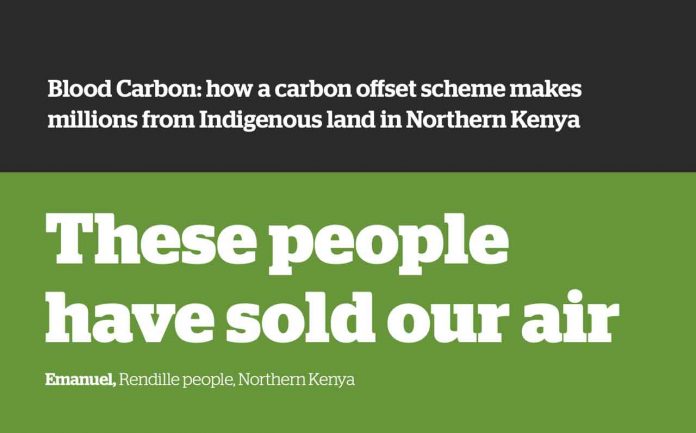These People Have Sold Our Air
Survival International has released a report exposing significant flaws in the Northern Kenya Grassland Carbon Project, a carbon offset scheme whose clients have included Meta and Netflix. The report, entitled “Blood Carbon: how a carbon offset scheme makes millions from Indigenous land in Northern Kenya,” reveals that the project, which is operated by the Northern Rangelands Trust (NRT) and covers land inhabited by over 100,000 Indigenous Samburu, Borana, and Rendille people, could generate up to $500 million.
According to the report, the project relies on breaking down Indigenous people’s long-standing grazing systems and replacing them with a centrally controlled system more like commercial ranching, which could endanger their food security by preventing the traditional practice of migration during drought. Moreover, there is insufficient evidence that NRT has adequately informed communities about the project, let alone obtained their free, prior, and informed consent.
As a result, very few people in the project area have a clear understanding of what the project is about. The report also raises serious questions about the legal basis of the project, particularly NRT’s right to ‘own’ and trade carbon from the lands concerned. Furthermore, the project fails to present a credible case for its carbon ‘additionality,’ which is a fundamental principle for generating carbon credits.
The report marks the launch of Survival’s “Blood Carbon” campaign, which aims to highlight how the sale of carbon credits from protected areas could massively increase funding for human rights abuses against Indigenous peoples while doing nothing to combat climate change. The author of the report, Simon Counsell, former Director of Rainforest Foundation UK, said that NRT’s carbon project fails to comply with some of the basic requirements for carbon offsetting projects, such as showing clear additionality, having a proper baseline, and being able to measure carbon ‘leakage’ to other areas.
Fiore Longo, the head of Survival’s Decolonize Conservation campaign, added that NRT’s project is based on the same colonial and racist misconception that pervades many large conservation projects, which blame Indigenous peoples for environmental destruction. She emphasized that Indigenous peoples are the best conservationists and that this project is not just dangerous greenwashing, but “blood carbon,” as NRT is making money by destroying the way of life of those least responsible for climate change.






